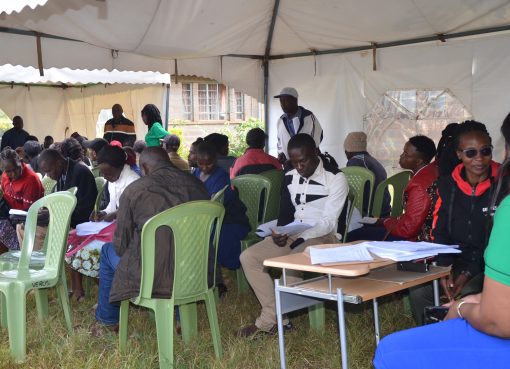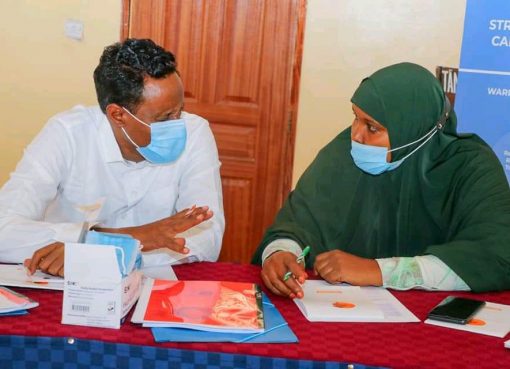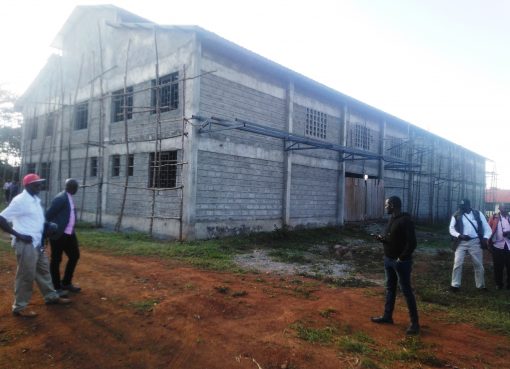Kenya Revenue Authority (KRA) projects to collect Sh2.7 billion from cargo imports at the Eldoret International Airport this year following resumption of cargo flights.
“With goodwill from the Kenya Association of International Cargo Consolidator, KAICC, and other stakeholders we target to collect the Sh2.7b as taxes from the Eldoret Airport that will go towards supporting government initiative of funding development,” said KRA acting Commissioner of Customs and Border Control Ms. Pamela Ahago.
Speaking in Eldoret, Ms. Ahago said within the last three financial years, KRA managed to collect Sh6.3 billion in taxes from cargo imports through the Eldoret airport.
KRA’s projection comes as cargo flights were re-launched to Eldoret International cargo flights by the Cabinet Secretary for Roads and Transport Kipchumba Murkomen and his Investment and Trade counterpart Moses Kuria.
“Whereas we have noted a decline in cargo volumes in the last two financial years which has impacted our revenue collection targets, we are optimistic that the cargo volumes will increase in the current financial 2023/2024,” said Ahago.
Ms. Ahago said KRA was committed to clearing cargo imported through the Airport within two days if the importers fully disclosed their imported goods and paid the correct taxes as well as provide authentic documentation to customs officers.
“I urge the association to rally their members to ensure full disclosure of imported goods, pay correct tax, and provide authentic documentation to the customs officers, and in turn KRA promises to enhance release times of goods so that your goods don’t overstay in the airport, hence reducing costs associated with goods risks, such as demurrage charges,” she urged
“I assure you that we will support your business to thrive and we commit to clear cargo at the airports in the shortest time possible, at most within two days,” stated Ahago.
In his remarks, Investment and Trade CS said there was a need for KRA and other relevant bodies to look for innovative ways to ensure goods are cleared within 24 hours.
“We are exploring the possibility of outsourcing scanning and verification of goods at the Eldoret Airport to a private company to ease the burden of scanning and verification and have the 24-hour cycle,” said Kuria.
Transport CS assured that the government would speed up the expansion of the airport’s four-kilometre stretch of tarmac and an additional 600 metres of the safety zone to allow aircraft to lift heavy cargo from the airfield.
Murkomen noted that the 3.5km long and 45-meter-wide runway was too short to handle aircraft with heavy loads of cargo, a matter he argued calls for expansion of the facility.
However, the CS decried low volumes of export cargo from the airport, “We are relaunching cargo flights to the airport, but which cargo will be exported from the airport after the planes offload the imports?” he posed.
Murkomen said this was an opportune moment for the farming community in the region to venture into horticulture to supply for export.
“I wish to ask the people of Uasin Gishu, Elgeyo Marakwet, West Pokot, Turkana, Nandi, Kericho, Baringo and Nakuru to work hard to provide herbs, tea and horticulture that we can export out of Eldoret airport,” he said.
“Former President, the late Daniel Arap Moi’s vision of constructing the airport was achieved. It is now for us as leaders and the people of this region to take the vision to the next level by providing goods for export,” said Murkomen.
Low freight volumes at the Airport had forced cargo flights to stop operating from the facility while others made single flights weekly.
The airlines had cited low horticultural production in the North Rift as their decision to stop operating from the facility two years ago.
According to Cane Kane International, an exporting agency at the airport, a 60 percent drop in horticultural production had forced the firm to outsource some of the produce from Central and Eastern regions to meet the 40 tonnes required for a cargo flight.
By Kiptanui Cherono





